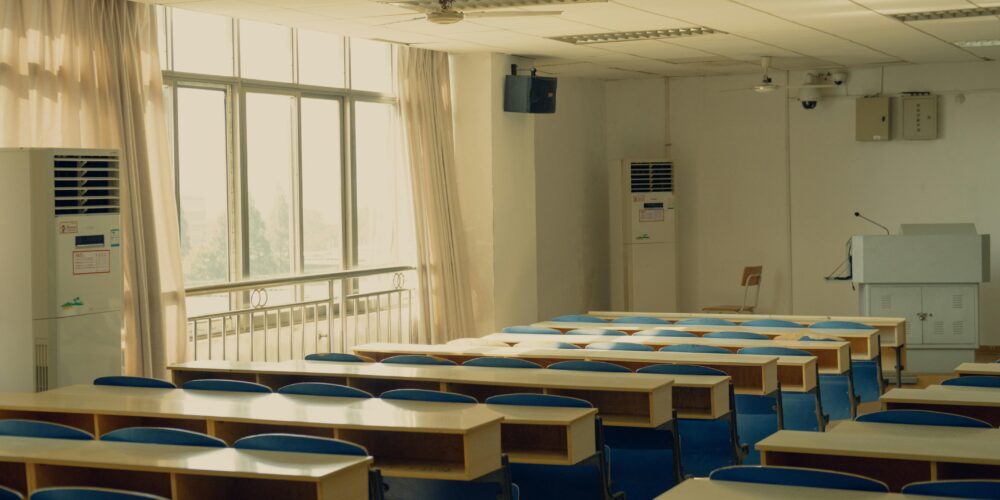
Innovative Solutions for Indoor Air Exposure: Agile, Lean, and Resilient (INSIDE-AIR)
- Fellow
- Asit Kumar Mishra
- Countries
- Denmark, Ireland
- Institutions
- Technical University of Denmark
University College Cork - Contact
- akumarmishra@ucc.ie
- Website(s)
- sites.google.com
Dr Asit Kumar Mishra University College Cork & Technical University of Denmark
Public health challenges are evolving. Our interconnected world, climate crisis, and ecosystem destruction are causing new airborne diseases, extreme temperatures, dust storms, and wildfires. These issues put a lot of pressure on buildings to maintain comfortable and healthy indoor air quality (IAQ) and temperature. Current building designs do not prioritize occupant health or adapt well to sudden changes. We need a new approach to ensure healthier indoor climate for everyday use and during public health crises, using flexible and sustainable methods so buildings can be both energy-efficient and healthy.
Dr Mishra’s research aims to lead this change by making indoor climate guidelines resilient to future health threats through a cross-disciplinary project called INSIDE-AIR (Innovative Solutions for Indoor Air Exposure: Agile, Lean, and Resilient). This project will train Dr Mishra, an engineer, in public health, helping him better understand and address health issues caused by poor indoor climates. The goal is to add health-based requirements to the usual comfort and energy-based building designs and address them using agile and lean engineering solutions.
To achieve this, Dr Mishra will review current knowledge on the health impacts of indoor climates, develop a framework to rate and communicate these health impacts, and create a collection of engineering solutions for building and operating sustainable buildings with healthy indoor climates. These solutions will be tested through model building simulations, complemented with real building measurements.
The INSIDE-AIR project aims to create a system like fire safety systems in buildings, but for the indoor climate. Normally, it ensures comfortable and healthy indoor spaces, but during “acute” events like heatwaves, it will be ready to meet the extra needs for occupant comfort and health, like a fire safety system activating at times of a fire. The idea is to be prepared for emergencies and use this readiness to improve daily building operations, ensuring occupant comfort and wellbeing.
The focus will be on school classrooms. Measurements of IAQ and indoor temperatures will be taken in various classrooms to understand their different needs. These measurements will feed into the building simulations to evaluate solutions. Dr Mishra is working under the guidance of Dr. Eilis O’Reilly from the School of Public Health at University College Cork and Prof. Pawel Wargocki from the Indoor Environment research group at DTU Sustain, Technical University of Denmark. This ensures a multi-disciplinary approach to the problem.
The overall goal is to initiate policy changes for healthier buildings, treat buildings as tools for public health, and make it easier to communicate about healthy IAQ to the public.
Publications and Links
- How to ease the effects of heat
- Is the air quality in your office fit for purpose?
- 5 tips to save money on your heating this winter
- Deep energy renovations’ impact on indoor air quality and thermal comfort of residential dwellings in Ireland – ARDEN project
- Certain indoor air pollutants can be absorbed through the skin – here’s what you need to know
- How vaping has an unhealthy impact on indoor air quality
- Evaluating Indoor Climate Interventions: Balancing Sustainability and Health Outcomes
- Applying a composite indoor environmental quality indicator to Danish office spaces: The TAIL index
- Thermal comfort of adolescent children in classrooms: Some reflections on the state-of-the-art
- A scoping review of how smart window technologies impact classroom indoor climate
- Energy retrofits: Factors affecting a just transition to better indoor air quality
News
Asit’s latest paper explores the impact of indoor plants on wellbeing in open-plan offices in India. Key findings include:
– Cooler Spaces: Reduced cooling energy use by over 8%.
– Enhanced Wellbeing: Boosted positive emotions and comfort.
– Improved Visual Appeal: Spaces appeared nicer and cleaner.
While plants didn’t improve task performance or air quality, they made tasks feel easier and breathing slightly better. These small effects could enhance comfort and energy efficiency in large offices or schools.
Read the full study in Building and Environment here.